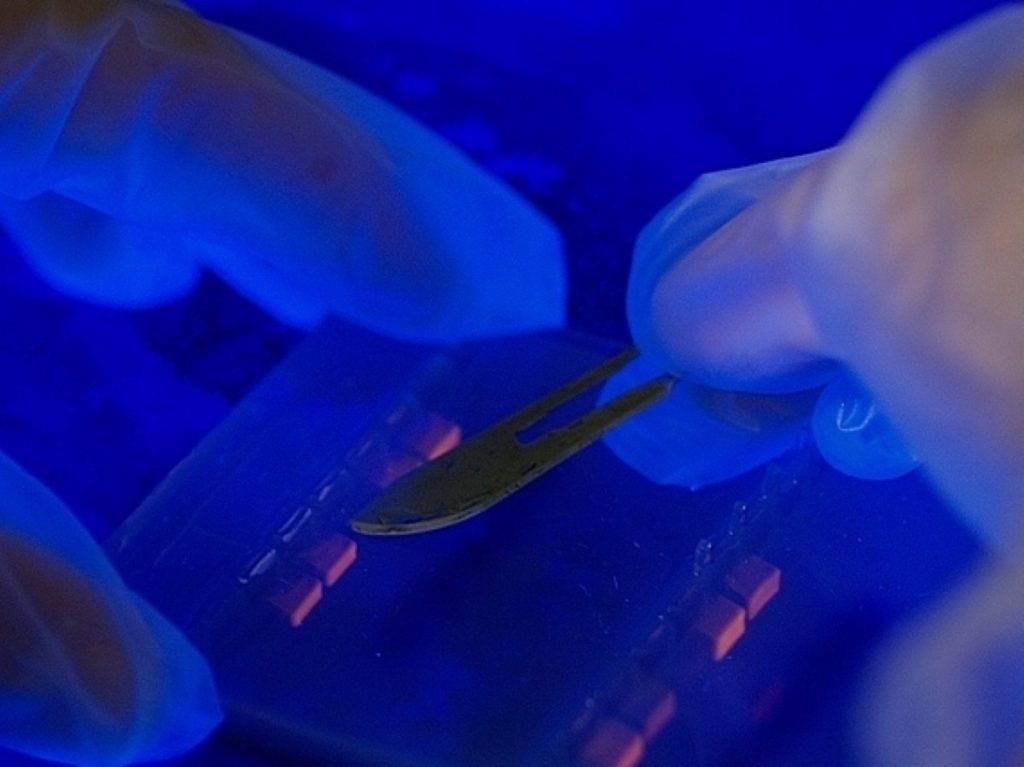Brown accused of misleading over DNA claims
By Ian Dunt
Gordon Brown has been accused of misleading the public in his staunch defence of DNA retention.
Speaking at an election event today, Mr Brown was joined by Linda Bowman, whose daughter Sally Anne was murdered in 2005.
Mr Brown suggested the killer of Sally Anne, Mark Dixie, would have been discovered unless the police had his DNA.


“Linda Bowman is a remarkable and brave woman who has suffered the most unspeakable tragedy yet still manages to be a compassionate campaigner for good,” he said.
“As Mrs Bowman says, the use of DNA helps the police put the most dangerous criminals behind bars but can also exonerate the innocent.”
But opposition parties and civil libertarians seized on the comments, saying they “could not be further from the truth”.
Dixie had his DNA taken when he was involved in a pub brawl, meaning it was not retained as an innocent, but as a man who was arrested for a violent offence, privacy groups said.
Shami Chakrabarti, director of Liberty, commented: “It has been suggested that the tragic case of Sally Anne Bowman was only solved because her murderer was ‘an innocent’ on the database.
“In fact, he was arrested for a separate violent offence and it was then that his DNA was matched to the crime scene.”
As the situation stands, people who are arrested but not convicted of a crime still have their DNA retained for set period of time.
“We all agree that DNA taken on arrest should be checked against unsolved crimes – this is entirely different from stockpiling the DNA of innocent men, women and children for years on end,” Ms Chakrabarti said.
Chris Huhne, Liberal Democrat home affairs spokesman, said: “It is deeply disappointing that Gordon Brown is using Sally Anne Bowman’s terrible murder to mislead people about the DNA database.
“It is completely right to check the DNA of those arrested against a database of unsolved crimes. It is completely wrong to hoard innocent people’s DNA for years on end.”
GeneWatch UK made a similar attack, calling on the government produce evidence for its claims.
“Murders solved by keeping innocent people’s DNA records are as elusive as the weapons of mass destruction in Iraq,” said Dr Helen Wallace.
“If the government has a case to make why can’t it produce the evidence?”
Appearing beside Mr Brown, home secretary Alan Johnson insisted the government would not give up on its controversial programme.
“When it comes to crime, David Cameron has shown time and time again that he’s more concerned with headlines than policies. The Tories might try and talk tough on crime but their actions are weak,” he said.
“Their plans for DNA would make it much harder for the police to catch criminals -putting the public at greater risk.”
The announcement is further proof that Labour intends to focus its attacks on Chris Grayling, shadow home secretary and a figure increasingly viewed as a weak link on the Tory front bench.
Mr Johnson and Mr Grayling became embroiled in a vicious and protracted war of words on the subject of DNA during the wash-up period this week.
On Wednesday, Mr Johnson attacked his Tory counterpart angrily for pledging to oppose sections of the bill on the DNA database.
The Crime and Security Act 2010, as it is now known, gives police powers to retain DNA information for convicted offenders indefinitely – and for them to retrospectively take DNA samples from violent and sexual offenders returning to the UK following conviction overseas.
“I will not let the Tories block the DNA clauses in the crime and security bill – it is too important to let this issue slide and I will be unrelenting in my drive to get this through,” Mr Johnson said.
Mr Grayling then suddenly emerged to say the Tories would not be opposing those clauses, because the indefinite retention of DNA had already been branded illegal by the courts. The statement caused confusion among many commentators, because the court case in questions happened months ago and is unlikely to affect current political discussion.
Hours later, Mr Johnson re-emerged to shoot back: “Chris Grayling is obviously a man with a great future behind him.
“Having been involved in a whole series of gaffes he is now so weak that he has been forced to eat his words on the crime and security bill.”
Mr Grayling received little support from the party when a tape emerged on the Observer website last Sunday revealing his views on the rights of B&B owners to refuse gay guests. Analysts believe his tenure at the Home Office would be very short if the Tories win the election.

